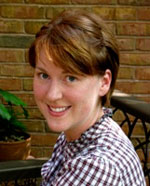
7 Questions for Maggie Shipstead

You grew up in California and went to major schools (Harvard and Iowa). How did it come to be that you’ve written about rural, isolated ranch life in “The Cowboy Tango?” Have you worked on a ranch or had to walk a horse to its deathbed?
This story is, at best, only a partial advertisement for writing what you know. Although I’ve been to 44 states, Montana unfortunately isn’t one of them. I have ridden horses for most of my life, but I ride in an English saddle and my characters would find me laughably dandified and useless. When I started writing the story, I was staying with an aunt and uncle in Boulder on my way from California to Iowa, and I had already turned out the light to go to sleep when I decided to get up and write the first page. Then I went back to bed. So, to me, the story seems more like the product of a random impulse than of accumulated experience. I’ll admit that I’m as opportunistic and larcenous for details as a raccoon is for shiny things. A close friend of mine was helpful enough to spend a fair chunk of her life wrangling on a ranch in Montana, and her stories were the source of some of the details in the story—for instance, the way favorite horses were paid the respect of being shot out in the open air when their times came. Plenty of other details are pure invention or are composites. That said, when I was 19, I had to decide to have a young horse put down, and walking away from him knowing full well that he was about the die was a very painful experience, especially since I’ve always had a lingering suspicion that the brave choice would have been to stay with him through the end. That experience gave me a healthy appreciation for how a living horse is full of both vitality and fragility and how a dead horse, largely by virtue of its size, is inescapably troubling and grotesque.
There aren’t any real heroes in “The Cowboy Tango.” The Otter and Sammy both make mistakes rooted in pride and selfishness, and cower in the face of opportunities to be good people. Did you find it difficult to write a story in which both main characters are flawed, unhappy people who make bad choices?
I think I would have had a much harder time writing a story about flawless, happy people who make good choices. I like all the characters in this story, and, at the same time, I feel sorry for them. They inhabit a tiny world in the midst of a vast landscape. Driving cross-country, I’ve often experienced a trick played by big sky and wide, open spaces, which is the vicarious illusion that you, the tiny human speck in the middle of it all, have more freedom and live a life of more possibilities than you actually do. If love were the product of a logical, practical choice, Sammy and the Otter might have been much better off.
What are your hopes for your writing life when you begin the Stegner fellowship this fall?
Well, the Stegner doesn’t kick off for another few weeks, so that experience is still a mystery. Last year, when I was writing my novel, I spent eight months in fairly serious isolation on Nantucket: my record was five weeks without having a face-to-face conversation with another person, besides basic transactions like buying groceries. I’m hoping Stanford will help me find a balance between a somewhat normal life in which I’m also a productive writer and the proverbial, Thoreau-wandering-the-woods-and-talking-to-himself writing life.
It seems that writers often have secret obsessions that last for a period of time, which may or may not inform their writing. What are you currently obsessed with?
As a child I was an intense and very nerdy serial obsesser—shipwrecks, submarines, Egypt, paleoanthropology, Russian history, travel writing, spy novels, Sherlock Holmes. Lately I’ve been wondering where my obsessions have gone. I suspect they’ve coalesced into larger fixations and anxieties. For example, I have to struggle against an urge to write exclusively about how scary the ocean is and how much it freaks me out that strange and ruined things are submerged in it, which seems to derive from the same stray glitch of psychology that led me to check out all those shipwreck books when I was little.
What did you read in the beginning that made you want to write?
I’ve always loved to read, but I had no desire to be a pusher as well as a user until well into college. Then I started to write fiction more out of a spirit of experimentation than aspiration. Now, though, I’m constantly being confronted with work I’d sell my soul to have written. The Great Gatsby is probably everyone’s example; it’s mind-blowing no matter how many times you read it. I would consider marrying certain stories by Cheever, Updike, and Munro. I’ve been both inspired and disheartened (how can they be so good?!) by work by Annie Proulx, Jeffrey Eugenides, Michael Chabon, Jane Austen, Woolf, Waugh, Bellow, Nabokov, and Faulkner.
What are you reading right now?
John Updike’s early stories, Scoop by Evelyn Waugh (deeply politically incorrect, deeply witty), The Sportswriter by Richard Ford, and The Final Club by Geoffrey Wolff. I like a smorgasbord.
If you could do anything else you wanted, be any other kind of professional or artist, what would it be?
I think one sign that I’m attempting the correct path is that I really can’t think of anything else I would be well suited for. But I also think someone should conduct a survey to see how many writers are writers just because they don’t like getting up early.
